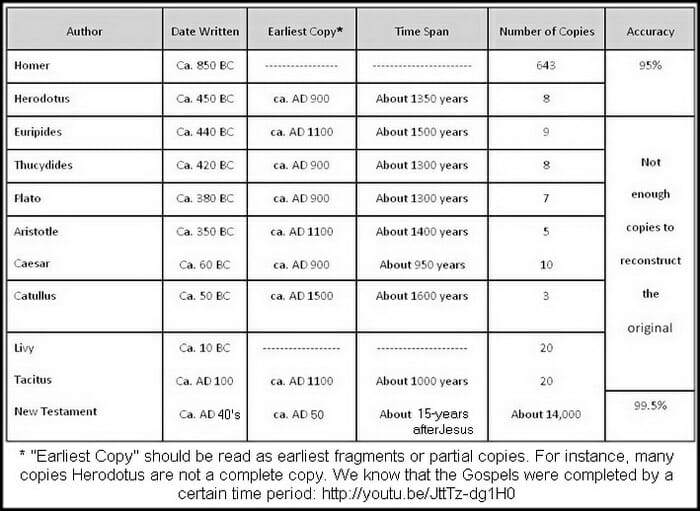Ravi Zacharias

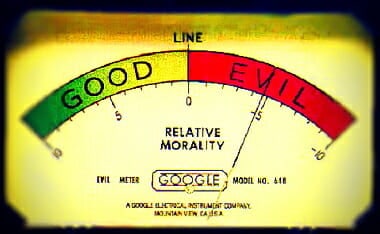
Buddhism “Hashed Out” To Its Logical Conclusions
Originally Posted May 24th, 2010
A partial portion from my proposed book and an old post elsewhere:
I wish to illustrate with a conversation (unfinished by the way) between myself and a Zen Buddhist. This conversation can almost happen with any religious Hindu, Buddhist, Taoist, or the like. The conversation takes place after an interesting post by the person on his blog about self-defense, the Dalai Lama, WWII, and the Buddha. I will post my reply to his original thought, and then he responds, followed again by me. (Keep in mind I am using our “blog” names, they are almost like “handles” like in the movie Top Gun):[1]
My initial engagement:
Does the idea of “violence” as a moral good or a moral evil truly exist in the Buddhist mindset? What I mean is that according to a major school of Buddhism, isn’t there a denial that distinctions exist in reality… that separate “selves” is really a false perception? Language is considered something the Buddhist must get beyond because it serves as a tool that creates and makes these apparently illusory distinctions more grounded, or rooted in “our” psyche. For instance, the statement that “all statements are empty of meaning,” would almost be self refuting, because, that statement — then — would be meaningless. So how can one go from that teaching inherent to Buddhistic thought and say that self-defense (and using WWII as an example) is really meaningful. Isn’t the [Dalai] Lama drawing distinction by assuming the reality of Aristotelian logic in his responses to questions? (He used at least three Laws of Logic [thus, drawing distinctions using Western principles]: The Law of Contradiction; the Law of Excluded Middle; and the Law of Identity.) Curious.
They Call Him James Ure, responds:
You’re right that language is just a tool and in the end a useless one at that but It’s important to be able run a blog. That or teach people the particulars of the religion. It’s like a lamp needed to make your way through the dark until you reach the lighthouse (Enlightenment, Nirvana, etc.) Then of course the lamp is no longer useful unless you have taken the vow to teach others. Which in my analogy is returning into the dark to bring your brothers and sisters along (via the lamp-i.e. language) to the lighthouse (enlightenment, Nirvana, etc.)
I respond:
Then… if reality is ultimately characterless and distinctionless, then the distinction between being enlightened and unenlightened is ultimately an illusion and reality is ultimately unreal. Whom is doing the leading? Leading to what? These still are distinctions being made, that is: “between knowing you are enlightened and not knowing you are enlightened.” In the Diamond Sutra, ultimately, the Bodhisattva loves no one, since no one exists and the Bodhisattva knows this:
“All beings must I lead to Nirvana, into the Realm of Nirvana which leaves nothing behind; and yet, after beings have been led to Nirvana, no being at all has been led to Nirvana. And why? If in a Bodhisattva[2] the notion of a “being” should take place, he could not be called a ‘Bodhi-being.’ And likewise if the notion of a soul, or a person should take place in him.” (Comparative Religions – Buddhism)
So even the act of loving others, therefore, is inconsistent with what is taught in the Buddhistic worldview, because there is “no one to love.” This is shown quite well (this self-refuting aspect of Buddhism) in the book, The Lotus and the Cross: Jesus Talks with Buddha. A book I recommend with love, from a worldview that can use the word love well. One writer puts it thusly: “When human existence is blown out, nothing real disappears because life itself is an illusion. Nirvana is neither a re-absorption into an eternal Ultimate Reality, nor the annihilation of a self, because there is no self to annihilate. It is rather an annihilation of the illusion of an existing self. Nirvana is a state of supreme bliss and freedom without any subject left to experience it.”
My Final Response
I haven’t seen a response yet. Which is fitting… because whom would be responding to whom? Put another way, would there be one mind trying to actively convince the other mind that no minds exist at all?
Here’s another way to see the same thing, Dan Story weighs in again:
It may be possible that nothing exists. However, it is impossible to demonstrate that nothing exists because to do so would be to deny our own existence. We must exist in order to affirm that reality doesn’t exist. To claim that reality is an illusion is logically impossible because it also requires claiming that the claim itself is unreal—a self-defeating statement. If reality is an illusion, how do we know that pantheism isn’t an illusion too?[3]
Another author put it thusly, “if pantheism is true (and my individuality an illusion), it is false, since there is no basis by which to explain the illusion.”[4] The challenge then becomes this: “if reality is an illusion, how do we know then that pantheism isn’t an illusion as well?”[5] You see…
…most people assume that something exists. There may be someone, perhaps, who believes that nothing exists, but who would that person be? …. no one ever consciously tries to defend the position that nothing exists. It would be a useless endeavor since there would be no one to convince. Even more significantly, it would be impossible to defend that position since, if it were true, there would be no one to make the defense. So to defend the position that nothing exists seems immediately to be absurd and self-contradictory.[6]
Another problem in pantheism is God’s inability to deal with or solve the problem of evil.[7] Dan Story points out what should be becoming obvious, “He is the cause of it (remember, all is God).” Mr. Story continues:
Pantheism and the New Age may try to ignore this problem by claiming that sin and suffering is merely illusion. But let’s bring this philosophy down to the real world. Try to convince a man dying of cancer or a parent who has just lost a child that evil and suffering are illusion. Even if evil is an illusion, the illusion itself is real. In either case, evil exists. As Geisler noted, “If evil is not real, what is the origin of the illusion? Why has it been so persistent and why does it seem so real?… How can evil arise from a ‘God’ who is absolutely and necessarily good?”[8] The answer must be that if pantheism is true, God cannot be good, and He must be the source of evil.[9]
Between karmic destiny and the god[s] of pantheism and its dealing with pain and suffering (and consequently the promotion of it) by claiming everything is an illusion is not an answer at all. Must we not live as if this illusion is reality? In other words, “look both ways:”
As the professor waxed eloquent and expounded on the law of non-contradiction, he eventually drew his conclusion: “This [either/or logic] is a Western way of looking at reality. The real problem is that you are seeing contradictions as a Westerner when you should be approaching it as an Easterner. The both/and is the Eastern way of viewing reality.”
After he belabored these two ideas on either/or and both/and for some time, I finally asked if I could interrupt his unpunctuated train of thought and raise one question.
I said, “Sir, are you telling me that when I am studying Hinduism I either use the both/and system of logic or nothing else?”
There was pin-drop silence for what seemed an eternity. I repeated my question: “Are you telling me that when I am studying Hinduism I either use the both/and logic or nothing else? Have I got that right?”
He threw his head back and said, “The either/or does seem to emerge, doesn’t it?”
“Indeed, it does emerge,” I said. “And as a matter of fact, even in India we look both ways before we cross the street – it is either the bus or me, not both of us.[10]
Pantheists may pawn this inane philosophy on people, but no one can live it out consistently as Ravi pointed out. Moreover, when a large population tries to live it – like in India – one can see the fruits it produces, the destruction of the family a case in point.[11] The promulgation of suffering and the inability of the religious Hindu to stop and help a suffering child or the rampant infestation of disease ridden — crop eating — pests, is all a loud refutation of trying to live an unlivable religious proposition. A lie.
[1] I use quite liberally in this exchange two resources, they are follows: Michael J. Murray, ed., Reason for the Hope Within, 212-214; Ernest Valea, “Possible difficulties in Buddhism,” Many Paths To One Goal? Found at: http://www.comparativereligion.com/Buddhism.html (last accessed 8-11-09), the main site is: http://www.comparativereligion.com/index.html
[2] “One who has taken a vow to become a Buddha.” David Burnett, The Spirit of Buddhism: A Christian Perspective on Buddhist Thought (Grand Rapids, MI: Monarch Books, 2003), 329. “Celestial” Buddha’s and bodhisattvas are said to be able to assist in guiding believers towards salvation as supernatural beings. These bodhisattvas vary in their rolls and offices as the many gods of Hinduism, from which Buddhism comes. See: Michael D. Coogan, Eastern Religions: Hinduism, Buddhism, Toaism, Confucianism, Shinto (New York, NY: Oxford University Press, 2005), 133-139.
[3] Dan Story, Christianity on the Offense, 112-113.
[4] Francis J. Beckwith and Stephen E. Parrish, See the Gods Fall: Four Rivals to Christianity (Joplin, MO: College Press, 1997), 210.
[5] Dan Story, Christianity on the Offense, 112-113.
[6] L. Russ Bush, A Handbook for Christian Philosophy (Grand Rapids, MI: Zondervan, 1991), 70.
[7] Michael J. Murray critiques quickly the Ramanuja and Madhya philosophies:
Stated in terms of Christian terminology, Ramanuja’s view implies that every soul that has ever existed endured an eternity in “hell” (i.e., the cycle of rebirths) before it could enter “heaven” (i.e., union with God). Now unlike Madhya, Ramanuja claims that God freely, and beginninglessly, created the world, and all existing souls, out of his own being. This latter claim, however, presents Ramanuja with a very severe problem of evil: that of reconciling his belief that God is perfectly good and all-loving with God’s ultimate responsibility for the beginningless existence of souls in a state of sin and suffering. The problem of evil faced by Ramanuja here is much more severe than that faced by Western theists. First, unlike Western theists, Ramanuja cannot say that this evil is a necessary consequence of God’s creating creatures with free will. Although the suffering of a soul in any individual life could be blamed on the bad karma resulting from its free choices in previous lives, the fact that the suffering is beginningless — and hence infinite — cannot be blamed on free choice. The reason for this is that, no matter what free choices souls make in this life, or have made in any previous life, they cannot change the fact that they have beginninglessly endured an infinite amount of suffering; but one cannot be responsible for what one was powerless to change. Followers of Ramanuja, therefore, do not seem to have recourse to the traditional free will theodicy invoked in the West to explain evil. Second, the amount of evil that needs to be explained is infinitely larger than that faced by Western versions of theism, since, according to Ramanuja each soul has committed an infinite number of evil acts and endured an infinite period of suffering. Unfortunately, as Julius Lipner points out, neither Ramanuja, nor any other orthodox Hindu theologian, ever attempted to address this particular problem of evil since they took the eternality of the world and souls as an “unquestioned datum for life and thought.” Unlike Ramanuja (and Western theism), however, Madhva’s theology largely avoids the problem of evil. The reason for this is that in his theology God is neither responsible for the beginningless existence of souls in a state of bondage, nor for the fact that they continue to remain in bondage, this being ultimately the result of their inherent, uncreated nature. Nonetheless, his system suffers from two drawbacks when compared to Ramanuja’s view. First, Madhva’s system leaves one with a plurality of ultimates — souls, matter, and God — without accounting for their existence. Although this is not a devastating criticism of Madhya, everything else being equal, views that hypothesize a single, unified source of everything (such as God), are in virtue of their simplicity, philosophically more satisfactory. Second, even though Madhya claimed to base his view on scripture, from the perspective of many orthodox Hindus his theology seems to contradict both those passages of Hindu scripture that appear to imply a deep sort of identity between God and souls and those that appear to imply that the world emerges out of God.
Reason for the Hope Within, 200-202.
[8] Norman Geisler, Christian Apologetics, 189 (emphasis added).
[9] Dan Story, Christianity on the Offense, 113.
[10] Ravi Zacharias, Can Man Live Without God? (Nashville, TN: Thomas Nelson, 1994), 128-129 (emphasis added).
[11] Rabi R. Maharaj, Death of a Guru, 13 and 14:
No matter how fulfilling life becomes, there are always certain regrets when one looks back. My deepest sense of loss involves my father, Chandrabhan Ragbir Sharma Mahabir Maharaj. How I wish he were still alive! Nor does the fact that this extraordinary man died so young and under such mysterious circumstances entirely explain my regret. So much that is even more remarkable has happened since then. I often wonder what it would be like to share it all with him, and what his reaction would be. To share it with him! We never shared anything in our lives. Because of the vows he had taken before I was born, not once did he ever speak to me or pay me the slightest heed. Just two words from him would have made me unspeakably happy. More than anything else in the whole world I wanted to hear him say, “Rabi! Son!” Just once. But he never did. For eight long years he uttered not a word, not even a whispered confidence to my mother…. “Why is Father that way?” I would ask my mother when I was still too young to understand. “He is someone very special—the greatest man you could have for a father,” she would reply, always patient with my persistent questions and puzzled expression. “He is seeking the true Self that lies within us all, the One Being, of which there is no other. And that’s what you are too, Rabi.”
I want to leave the reader with this thought by Robert Hume. In his book, The World’s Living Religions, he comments that there are three features of Christian faith that “cannot be paralleled anywhere among the religions of the world” [I can add here, the cults either]. These include the character of God as a loving Heavenly Father, the character of the founder of Christianity as the Son of God, and the work of the Holy Spirit. Further, he says:
The nine founders among the eleven living religions in the world had characters which attracted many devoted followers during their own lifetime, and still larger numbers during the centuries of subsequent history. They were humble in certain respects, yet they were also confident of a great religious mission. Two of the nine, Mahavira and Buddha, were men so strongminded and self-reliant that, according to the records, they displayed no need of any divine help, though they both taught the inexorable cosmic law of Karma. They are not reported as having possessed any consciousness of a supreme personal deity. Yet they have been strangely deified by their followers. Indeed, they themselves have been worshipped, even with multitudinous idols.
All of the nine founders of religion, with the exception of Jesus Christ, are reported in their respective sacred scriptures as having passed through a preliminary period of uncertainty, or of searching for religious light. Confucius, late in life, confessed his own sense of shortcomings and his desire for further improvement in knowledge and character. All the founders of the non-Christian religions evinced inconsistencies in their personal character; some of them altered their practical policies under change of circumstances.
Jesus Christ alone is reported as having had a consistent God consciousness, a consistent character himself, and a consistent program for his religion. The most remarkable and valuable aspect of the personality of Jesus Christ is the comprehensiveness and universal availability of his character, as well as its own loftiness, consistency, and sinlessness.
Robert Hume, The World’s Living Religions (New York, NY: Charles Scribner’s Sons, 1959), 285-286.
Buddhist/Christian Manuscripts Compared
Dr. Habermas discusses Buddhist and Christian Scriptures compared to original manuscripts:
The Buddha is said to have dies around (using the earliest date) 400 B.C.. The earliest portion of a Buddhist writing is dated at about 179 A.D. S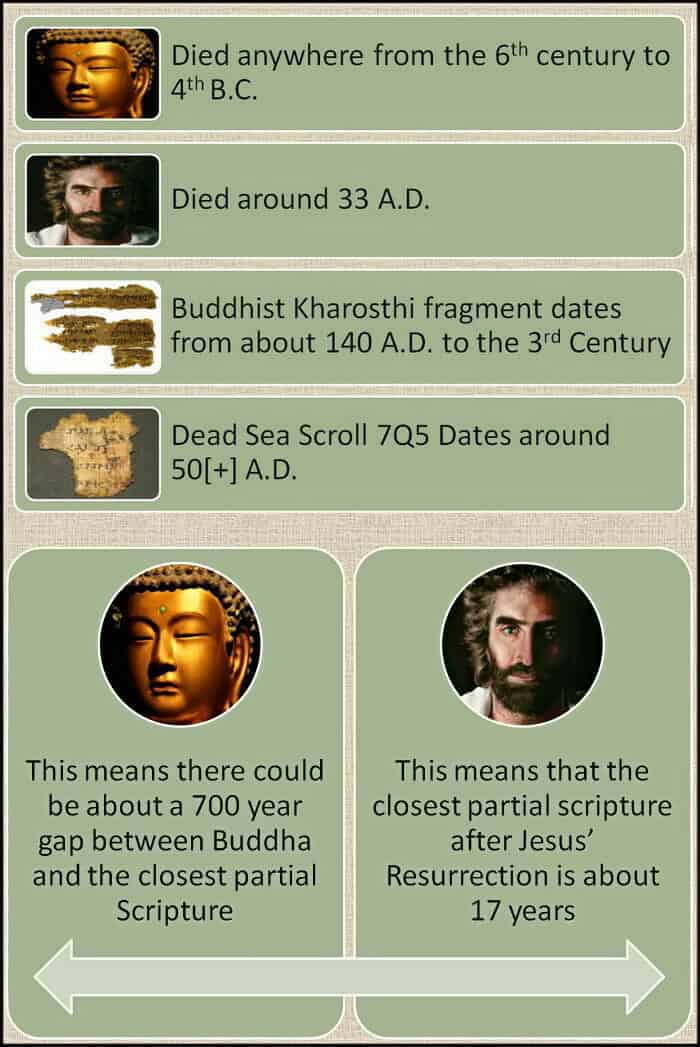 o let us compare this:
o let us compare this:
References for the above dating of the Buddhist fragments:
- Richard Salomon, Ancient Buddhist Scrolls from Gandhara: The British Library Kharosthi Fragments (PDF summation, book);
- Ingo Strauch, The Bajaur collection: A new collection of Kharoṣṭhīmanuscripts: A preliminary catalogue and survey (PDF).
Diamond Sutra Compared to Book of John
The most complete copy that dates early is the Gospel of John (Bodmer Papyrus II – 150-200 A.D.). That is 127 years after Christ, for the Gospel of John. The earliest fragment is dated to 120 A.D. And Clement of Rome quoted from it about 95 A.D., and Polycarp quoted from it around 110 A.D. [+]. So we KNOW John is older.
The oldest full book key to Buddhist thought is the Diamond Sutra, dated at about 868AD. That is 1,268-to-1,468 years after Buddha’s death. We KNOW the Diamond Sutra is older… but the fragments and quotes of the Gospel of John match up well with earliest text. The earlier quotes of the Diamond Sutra and it’s fragments show drastic change.
Another example. The earliest copy of Isaiah the church had was dated to about 900AD. They found a copy of Isaiah dated to 1,200 years earlier. Because of how the Jewish scribes copied text… there were only a few letters in the entirety of the text that were different. Most were in a word known to be “light” No meaning or concept was changed in those letters being different. (Sources: here, here, and here.)
The change in meaning in the Diamond Sutra from earlier Buddhist teaching as well as fragments is great:
Since at least the fifth century, generations of Buddhists have memorized and chanted the Diamond Sutra, a short Mahayana Buddhist scripture. The work, which offers meditations on illusion and perception, was originally written in Sanskrit and first translated into Chinese in 402 A.D. Despite the text’s longevity, Stanford religious studies professor Paul Harrison’s latest research suggests that previous translations may have incorrectly interpreted certain words in a way that affects the entire meaning of the text.
For the last seven years Prof. Harrison has been working on re-editing and re-translating the Diamond Sutra. Though he is a professor of religious studies his translation work falls squarely in the field of philology. Harrison is often surrounded by a large semicircle of previous translations and dictionaries that he consults as he combs through the sutra one word at a time.
The Diamond Sutra is one of the most historically important texts in the Buddhist faith, in part because a copy of it is the oldest surviving dated printed book in the world (868 A.D.). Also known by its Sanskrit title Vajracchedika, the Diamond Sutra posits that something is what it is only because of what it is not. The text challenges the common belief that inside each and every one of us is an immovable core, or soul—in favor of a more fluid and relational view of existence. Negative, or seemingly paradoxical statements by the Buddha abound in the text, such as “The very Perfection of Insight which the Buddha has preached is itself perfection-less.”
Professor Harrison elaborated, “I think the Diamond Sutra is undermining our perception that there are essential properties in the objects of our experience….

I write about the early attestation to the New Testament in the first 16-pages of my chapter on Gnosticism and Feminism. But I reworked Kenneth Boa’s graphic on comparing dating of ancient texts with some updated information not only cataloged via the aforementioned chapter from my book, but also from here, and the books:
- Norman L. Geisler, Baker Encyclopedia of Christian Apologetics (Grand Rapids, MI: Baker Books/Academic, 1999);
- Carsten Peter Theide and Matthew d’Ancona, The Jesus Papyrus: The Most Sensational Evidence on the Origins of the Gospels Since the Discovery of the Dead Sea Scrolls (New York, NY: Galilee DoubleDay, 1996).
(I edited the last column under “Date Written” and “Time Span”)
Below is some of the evidence for the early dating of the New Testament.
More on this from Dr. Geisler:
[DSS stands for Dead Sea Scrolls]
….Light on the New Testament. Some DSS fragments have been identified as the earliest known pieces of the New Testament. Further, the messianic expectations reveal that the New Testament view of a personal messiah-God who would rise from the dead is in line with first-century Jewish thought.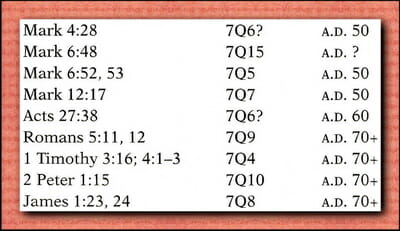
The New Testament fragments? Jose *O’Callahan, a Spanish Jesuit paleographer, made headlines around the world in 1972 when he announced that he had translated a piece of the Gospel of Mark on a DSS fragment. This was the earliest known piece of Mark. Fragments from cave 7 had previously been dated between 50 B.C. and A.D. 50 and listed under “not identified” and classified as “Biblical Texts.” O’Callahan eventually identified nine fragments. The center column in the following chart uses the numbering system established for manuscripts. For example, “7Q5” means fragment 5 from Qumran cave 7.
[RPT’s Note: 7Q5 matches up well with Mark 6:52-53 ~ see below, sources for graphic: here, here, as well as this chapter and the aforementioned books.]
Both friend and critic acknowledged from the beginning that, if valid, O’Callahan’s conclusions would revolutionize current New Testament theories. The New York Times reported: “If Father O’Callahan’s theory is accepted, it would prove that at least one of the gospels—that of St. Mark—was written only a few years after the death of Jesus.” United Press International (UPI) noted that his conclusions meant that “the people closest to the events—Jesus’ original followers—found Mark’s report accurate and trustworthy, not myth but true history” (ibid., 137). Time magazine quoted one scholar who claimed that, if correct, “they can make a bonfire of 70 tons of indigestible German scholarship” (Estrada, 136).
 Of course, O’Callahan’s critics object to his identification and have tried to find other possibilities. The fragmentary nature of the ms. makes it difficult to be dogmatic about identifications. Nonetheless, O’Callahan offers a plausible, albeit revolutionary, possibility. If the identification of even one of these fragments as New Testament is valid, then the implications for Christian apologetics are enormous. It would be shown that the Gospel of Mark was written within the life time of the apostles and contemporaries of the events.
Of course, O’Callahan’s critics object to his identification and have tried to find other possibilities. The fragmentary nature of the ms. makes it difficult to be dogmatic about identifications. Nonetheless, O’Callahan offers a plausible, albeit revolutionary, possibility. If the identification of even one of these fragments as New Testament is valid, then the implications for Christian apologetics are enormous. It would be shown that the Gospel of Mark was written within the life time of the apostles and contemporaries of the events.
A date before A.D. 50 leaves no time for mythological embellishment of the records. They would have to be accepted as historical. It would also show Mark to be one of the earlier Gospels. Further, since these manuscripts are not originals but copies, it would reveal that the New Testament was “published”—copied and disseminated—during the life time of the writers. It would also reveal the existence of the New Testament canon during this early period, with pieces representing every major section of the New Testament: Gospels, Acts, and both Pauline and General Epistles.
The fragment of 2 Peter would argue for the authenticity of this often disputed epistle. The absence of fragments of John’s writings might indicate that they were written later (A.D. 80-90) in accordance with the traditional dates. With all these revolutionary conclusions it is little wonder that their authenticity is being challenged.
First-Century Jewish Messianic Expectations. The DSS have also yielded text that, while not referring to the Christ of the New Testament, have some interesting parallels, as well as some significant differences. The similarities that confirm the New Testament picture accurately describes Jewish expectation of a personal, individual Messiah who would die and rise from the dead. A fragment called “A Genesis Florilegorium” (4Q252) reflects belief in an individual Messiah who would be a descendant of David. “Column 5 (1) (the) Government shall not pass from the tribe of Judah. During Israel’s dominion, (2) a Davidic descendant on the throne shall [not cease . . until the Messiah of Righteousness, the Branch of (4) David comes” (see Eisenman, 89).
Even the deity of the Messiah is affirmed in the fragment known as “The Son of God” (4Q246), Plate 4, columns one and two: “Oppression will be upon the earth . . . [until] the King of the people of God arises, . . . and he shall become [gre]at upon the earth. [ . . . All w]ill make [peace,] and all will serve [him.] He will be called [son of the Gr]eat [God;] by His name he shall be designated. . . . He will be called the son of God; they will call him son of the Most High” (ibid., 70).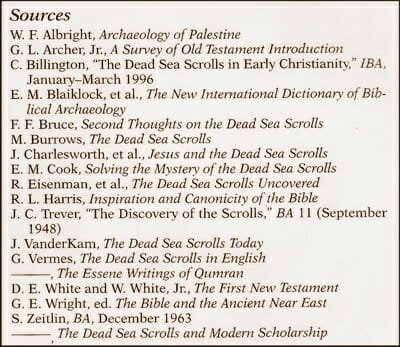
“The Messiah of Heaven and Earth” fragment (4Q521) even speaks of the Messiah raising the dead: “(12) then He will heal the sick, resurrect :he dead, and to the Meek announce glad tidings” (ibid., 23; cf. 63, 95).
The Dead Sea Scrolls also confirm that Qumran was not the source of early Christianity. There are significant differences between their concept of the “Teacher of Righteousness,” apparently an Essene messianic hope, and the Jesus revealed in Scripture and early Christianity. The differences are enough to show that early Christianity was not just an offshoot of the Essenes, as has been theorized (see Billing–ton, 8-10). The Essenes emphasized hating one’s enemies; Jesus stressed love. The Essenes were exclusivistic regarding women, sinners, and outsiders; Jesus was inclusive. The Essenes were legalistic sabbatarians; Jesus was not. The Essenes stressed Jewish purification laws; Jesus attacked them. The Essenes believed two messiahs would come; Christians held that Jesus was the only one (see Charlesworth).
Conclusion. The DSS provide an important apologetic contribution toward establishing the general reliability of the Old Testament Hebrew text, as well as the earliest copies of parts of Old Testament books and even whole books. This is important in showing that the predictive prophecies of the Old Testament were indeed made centuries before they were literally fulfilled. Furthermore, the DSS provide possible support for the New Testament. They may contain the earliest known fragments of the New Testament, and they definitely contain references to messianic beliefs similar to those taught in the New Testament.
Norman L. Geisler, Baker Encyclopedia of Christian Apologetics (Grand Rapids, MI: Baker Books/Academic, 1999), 188-189.
Take note as well that the earliest Church Fathers quoted Scripture… which would need to be completed and widely used by then:
- You write “All four gospels are quoted in patristic writings (a technical term which means writings by the early church “fathers.”) before AD 100 in books such as the Epistle of Barnabus, the book of Clement of Rome and the Didache.” There is nothing said about the four Gospels in the “Clement of Rome”. It is really pathetic that you must base supernatural ideas on false evidence and then you show this false evidence to the masses. I’d really like to get a response as to where I can find the gospels mention in the “Clement of Rome”. I’m curious to know what words you rummaged through to come up with this ridiculous accusation.
Answer:
I sense a lot of anger here. The use of words like “pathetic” and “ridiculous” are really not helpful if you want to engage in honest conversations. I want to encourage you to use a more respectful tone, even with those with whom you do not agree. In any case, I just gave a very quick little read of the Letter of Clement to Rome. I found a few quotations from the gospels as well as ones from the letters. Below is a sampling. Besides these, I found a number of allusions to the gospels and other New Testament Books. After each quote, I will have a very short comment.
1Clem 13:1 Let us therefore be lowly minded, brethren, laying aside all arrogance and conceit and folly and anger, and let us do that which is written. For the Holy Ghost saith, Let not the wise man boast in his wisdom, nor the strong in his strength, neither the rich in his riches; but he that boasteth let him boast in the Lord, that he may seek Him out, and do judgment and righteousness most of all remembering the words of the Lord Jesus which He spake, teaching forbearance and long-suffering.
This is a quote from 1 Corinthians 1:31
1Clem 13:2 for thus He spake Have mercy, that ye may receive mercy: forgive, that it may be forgiven to you. As ye do, so shall it be done to you. As ye give, so shall it be given unto you. As ye judge, so shall ye be judged. As ye show kindness, so shall kindness be showed unto you. With what measure ye mete, it shall be measured withal to you.
This is a quote from Matthew 7:2
1Clem 15:2 For He saith in a certain place This people honoreth Me with their lips, but their heart is far from Me.
This is quoting from either Matthew 15:8 or Mark 7:6
1Clem 16:1 For Christ is with them that are lowly of mind, not with them that exalt themselves over the flock.
This is an allusion to Luke 22:26 or Matthew 23:11
1Clem 34:8 For He saith, Eye hath not seen and ear hath not heard, and it hath not entered into the heart of man what great things He hath prepared for them that patiently await Him.
This is a quote from 1 Cor 2:9
1Clem 36:2 Through Him let us look steadfastly unto the heights of the heavens; through Him we behold as in a mirror His faultless and most excellent visage; through Him the eyes of our hearts were opened; through Him our foolish and darkened mind springeth up unto the light; through Him the Master willed that we should taste of the immortal knowledge Who being the brightness of His majesty is so much greater than angels, as He hath inherited a more excellent name. 1Clem 36:3 For so it is written Who maketh His angels spirits and His ministers aflame of fire 1Clem 36:4 but of His Son the Master said thus, Thou art My Son, I this day have begotten thee. Ask of Me, and I will give Thee the Gentiles for Thine inheritance, and the ends of the earth for Thy possession. 1Clem 36:5 And again He saith unto Him Sit Thou on My right hand, until I make Thine enemies a footstool for Thy feet.
These are quoting from Hebrews Chapter one….
Ignatius of Antioch would be another prime example.
Effectively the above information updates this older Josh McDowell graph here. In other words, we know the early history of Christianity because of the wealth of evidence behind certain events. For instance:
“Pharisaic Judaizers come down to Antioch (Acts 15:1, 5) in the late summer of 49 A.D. and teach that circumcision is necessary before a person can be saved. Paul, Barnabas, Titus and certain others (Galatians 2:1-2) are sent to Jerusalem to confer with other apostles, elders and brethren concerning the relationship between circumcision and salvation. This gathering is commonly referred to as the Jerusalem Conference. This conference occurs in the Fall of 49 A.D. around the time of the Feast of Tabernacles (Acts 15:2).”
We know this because of the evidence… the same evidence to say that two letters describing the eruption of Mount Vesuvius are considered history.
Buddhism lacks this historical attestation and predictive power that the New Testament has in that the original texts are much closer to the events that happened. In fact, the New Testament is superior to ALL ancient documents in this respect.
✞ “…but test all things. Hold on to what is good” (I Thessalonians 5:21);
✞ “Dear friends, do not believe every spirit, but test the spirits to determine if they are from God, because many false prophets have gone out into the world” (1 John 4:1);
✞ “Test yourselves to see if you are in the faith. Examine yourselves. Or do you yourselves not recognize that Jesus Christ is in you?—unless you fail the test[a]” (2 Corinthians 13:5 — [a] “unless you are disqualified” or “you are counterfeit”).

Is Evil Proof Against God? Where Does It Come From?
Description of the above video:
- If there is a God, why is there so much evil? How could any God that cares about right and wrong allow so much bad to happen? And if there is no God, who then determines what is right and what is wrong? The answers to these questions, as Boston College philosopher Peter Kreeft explains, go to the heart of ethics, morality and how we know what it means to be a decent person.
The moment you say that one set of moral ideas can be better than another, you are, in fact, measuring them both by a standard, saying that one of them conforms to that standard more nearly than the other. But the standard that measures two things is something different from either.
[….]
My argument against God was that the universe seemed so cruel and unjust. But how had I got this idea of just and unjust? A man does not call a line crooked unless he has some idea of a straight line. What was I comparing this universe with when I called it unjust?
C.S. Lewis, Mere Christianity (Grand Rapids, MI: Zondervan, 2002), 13, 38.
Description of the above video:
- Isn’t human suffering proof that a just, all-powerful God must not exist? On the contrary, says Boston College Professor of Philosophy Peter Kreeft. How can “suffering” exist without an objective standard against which to judge it? Absent a standard, there is no justice. If there is no justice, there is no injustice. And if there is no injustice, there is no suffering. On the other hand, if justice exists, God exists. In five minutes, learn more.
Description of the above video:
- A student asks a question of Ravi Zacharias about God condemning people [atheists] to hell. This Q&A occurred after a presentation Ravi gave at Harvard University, and is now one of his most well-known responses in the apologetic sub-culture. This is an updated version to my original post (http://youtu.be/4EeOvWdHGaM). I truncated the beginning as well as editing the volume of the initial question. I also added graphics and text quotes into the audio presentation. Enjoy this short response by Mr. Zacharias, it is him at his best.
Description of the above video:
- Is evil rational? If it is, then how can we depend on reason alone to make a better world? Best-selling author Dennis Prager has a challenging answer.
Description of the above video:
- Atheists Trying to Have Their Cake and Eat It Too on Morality. This video shows that when an atheist denies objective morality they also affirm moral good and evil without the thought of any contradiction or inconsistency on their part.
EVERY ONE HAS HEARD people quarreling. Sometimes it sounds funny and sometimes it sounds merely unpleasant; but however it sounds, I believe we can learn something very important from listening to the kinds of things they say. They say things like this: “How’d you like it if anyone did the same to you?”–‘That’s my seat, I was there first”–“Leave him alone, he isn’t doing you any harm”–“Why should you shove in first?”–“Give me a bit of your orange, I gave you a bit of mine”–“Come on, you promised.” People say things like that every day, educated people as well as uneducated, and children as well as grown-ups.
 Now what interests me about all these remarks is that the man who makes them is not merely saying that the other man’s behavior does not happen to please him. He is appealing to some kind of standard of behavior which he expects the other man to know about. And the other man very seldom replies: “To hell with your standard.” Nearly always he tries to make out that what he has been doing does not really go against the standard, or that if it does there is some special excuse. He pretends there is some special reason in this particular case why the person who took the seat first should not keep it, or that things were quite different when he was given the bit of orange, or that some thing has turned up which lets him off keeping his promise. It looks, in fact, very much as if both parties had in mind some kind of Law or Rule of fair play or decent behavior or morality or whatever you like to call it, about which they really agreed. And they have. If they had not, they might, of course, fight like animals, but they could not quarrel in the human sense of the word. Quarreling means trying to show that the other man is in the wrong. And there would be no sense in trying to do that unless you and he had some sort of agreement as to what Right and Wrong are; just as there would be no sense in saying that a footballer had committed a foul unless there was some agreement about the rules of football.
Now what interests me about all these remarks is that the man who makes them is not merely saying that the other man’s behavior does not happen to please him. He is appealing to some kind of standard of behavior which he expects the other man to know about. And the other man very seldom replies: “To hell with your standard.” Nearly always he tries to make out that what he has been doing does not really go against the standard, or that if it does there is some special excuse. He pretends there is some special reason in this particular case why the person who took the seat first should not keep it, or that things were quite different when he was given the bit of orange, or that some thing has turned up which lets him off keeping his promise. It looks, in fact, very much as if both parties had in mind some kind of Law or Rule of fair play or decent behavior or morality or whatever you like to call it, about which they really agreed. And they have. If they had not, they might, of course, fight like animals, but they could not quarrel in the human sense of the word. Quarreling means trying to show that the other man is in the wrong. And there would be no sense in trying to do that unless you and he had some sort of agreement as to what Right and Wrong are; just as there would be no sense in saying that a footballer had committed a foul unless there was some agreement about the rules of football.
(accuser) “How’d you like it if anyone did the same to you?”
(responder) “Your right, I apologize.”
(accuser) “That’s my seat, I was there first!”
(responder) “Your right, you were. Here you go.”
(accuser) “Give me a bit of your orange, I gave you a bit of mine.”
(responder) “Oh gosh, I forgot, here you go.”
(accuser) “Come on, you promised.”
(responder) “Your right, lets go to the movies.”
Now this Law or Rule about Right and Wrong used to be called the Law of Nature. Nowadays, when we talk of the “laws of nature” we usually mean things like gravitation, or heredity, or the laws of chemistry. But when the older thinkers called the Law of Right and Wrong “the Law of Nature,” they really meant the Law of Human Nature. The idea was that, just as all bodies are governed by the law of gravitation and organisms by biological laws, so the creature called man also had his law–with this great difference, that a body could not choose whether it obeyed the law of gravitation or not, but a man could choose either to obey the Law of Human Nature or to disobey it.
This law was called the Law of Nature because people thought that every one knew it by nature and did not need to be taught it. They did not mean, of course, that you might not find an odd individual here and there who did not know it, just as you find a few people who are color-blind or have no ear for a tune. But taking the race as a whole, they thought that the human idea of decent behavior was obvious to every one. And I believe they were right. If they were not, then all the things we said about the war were nonsense. What was the sense in saying the enemy were in the wrong unless Right is a real thing which the Nazis at bottom knew as well as we did and ought to have practiced! If they had no notion of what we mean by right, then, though we might still have had to fight them, we could no more have blamed them for that than for the color of their hair.
I know that some people say the idea of a Law of Nature or decent behavior known to all men is unsound, because different civilizations and different ages have had quite different moralities.
But this is not true. There have been differences between their moralities, but these have never amounted to anything like a total difference. If anyone will take the trouble to compare the moral teaching of, say, the ancient Egyptians, Babylonians, Hindus, Chinese, Creeks and Romans, what will really strike him will be how very like they are to each other and to our own. Some of the evidence for this I have put together in the appendix of another book called The Abolition of Man; but for our present purpose I need only ask the reader to think what a totally different morality would mean. Think of a country where people were admired for running away in battle, or where a man felt proud of double-crossing all the people who had been kindest to him. You might just as well try to imagine a country where two and two made five. Men have differed as regards what people you ought to be unselfish to–whether it was only your own family, or your fellow countrymen, or everyone. But they have always agreed that you ought not to put Yourself first. selfishness has never been admired. Men have differed as to whether you should have one wife or four. But they have always agreed that you must not simply have any woman you liked.
But the most remarkable thing is this. Whenever you find a man who says he does not believe in a real Right and Wrong, you will find the same man going back on this a moment later. He may break his promise to you, but if you try breaking one to him he will be complaining “It’s not fair” before you can say Jack Robinson. A nation may say treaties do not matter; but then, next minute, they spoil their case by saying that the particular treaty they want to break was an unfair one. But if treaties do not matter, and if there is no such thing as Right and Wrong–in other words, if there is no Law of Nature–what is the difference between a fair treaty and an unfair one? Have they not let the cat out of the bag and shown that, whatever they say, they really know the Law of Nature just like anyone else?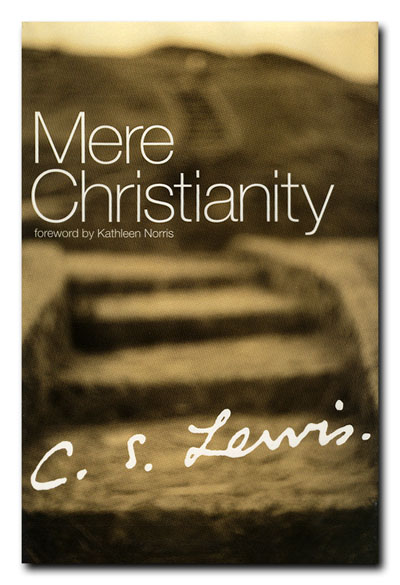
It seems, then, we are forced to believe in a real Right and Wrong People may be sometimes mistaken about them, just as people sometimes get their sums wrong; but they are not a matter of mere taste and opinion any more than the multiplication table. Now if we are agreed about that, I go on to my next point, which is this. None of us are really keeping the Law of Nature. If there are any exceptions among you, 1 apologize to them. They had much better read some other work, for nothing I am going to say concerns them. And now, turning to the ordinary human beings who are left:
I hope you will not misunderstand what I am going to say. I am not preaching, and Heaven knows I do not pretend to be better than anyone else. I am only trying to call attention to a fact; the fact that this year, or this month, or, more likely, this very day, we have failed to practice ourselves the kind of behavior we expect from other people. There may be all sorts of excuses for us. That time you were so unfair to the children was when you were very tired. That slightly shady business about the money–the one you have almost forgotten-came when you were very hard up. And what you promised to do for old So-and-so and have never done–well, you never would have promised if you had known how frightfully busy you were going to be. And as for your behavior to your wife (or husband) or sister (or brother) if I knew how irritating they could be, I would not wonder at it–and who the dickens am I, anyway? I am just the same. That is to say, I do not succeed in keeping the Law of Nature very well, and the moment anyone tells me I am not keeping it, there starts up in my mind a string of excuses as long as your arm. The question at the moment is not whether they are good excuses. The point is that they are one more proof of how deeply, whether we like it or not, we believe in the Law of Nature. If we do not believe in decent behavior, why should we be so anxious to make excuses for not having behaved decently? The truth is, we believe in decency so much–we feel the Rule of Law pressing on us so–that we cannot bear to face the fact that we are breaking it, and consequently we try to shift the responsibility. For you notice that it is only for our bad behavior that we find all these explanations. It is only our bad temper that we put down to being tired or worried or hungry; we put our good temper down to ourselves.
These, then, are the two points I wanted to make. First, that human beings, all over the earth, have this curious idea that they ought to behave in a certain way, and cannot really get rid of it. Secondly, that they do not in fact behave in that way. They know the Law of Nature; they break it. These two facts are the foundation of all clear thinking about ourselves and the universe we live in.
C.S. Lewis, Mere Christianity (New York, NY: Simon & Schuster, 1996), 17-21.
After reading that portion of CLASSIC Lewis, here is some thoughts from a philosopher that I disagree with on many points (he is an atheist after all), but he argues well for the following, even if later rejecting it:
If the reader is not familiar with Mere Christianity, I would urge him or her to buy it. The first chapter alone is worth the cost of the book. It is a brilliant piece of psychology. In it, Lewis sums up two crucial aspects of the human condition. We can see the first aspect in the passage quoted. Human beings do quarrel in the way Lewis describes. We are moral agents who cannot help feeling that there are some things we ought to do, and that there are other things we ought not to do. We believe, sometimes despite ourselves, that there is such a thing as right and wrong, and that there are certain principles of conduct to which we and all other human beings ought to adhere. In our dealings with other people we constantly appeal to those principles. We are quick to notice when others violate them. We get defensive and make excuses when it appears that we have violated them ourselves. We get defensive even when no one else is around. We accuse ourselves when no else does, and we rationalize our behavior in front of our consciences just as we would in front of another person. We cannot help applying to ourselves the principles we firmly believe apply to all. To use Alvin Plantinga’s term, the belief in morality is basic. Even when we reject that belief in our theoretical reasoning, it comes back to haunt us at every turn. We can never really get away from it. There is a reason why our legal system defines insanity as the inability to tell right from wrong: people who lack that ability have lost an important part of their humanity. They have taken a step down towards the level of beasts.
Even if, in our heart of hearts, we all believe in morality, we do not necessarily share the exact same moral values. Differences regarding values are at least a part of what we quarrel about. Yet Lewis correctly recognizes that our differences in this area never amount to a total difference. The moral beliefs human beings entertain display broad cross-cultural similarities. Ancient Egyptians did not appreciate having their property stolen any more than we do. A brother’s murder, a wife’s infidelity, or a friend’s betrayal would have angered them, just as it angers us. Human nature has not changed much for tens of thousands of years. It does not change at all when one travels to the other side of the globe.
I did not believe Lewis the first time I read him, or even the second time. This idea, that there is a fundamental underlying unity to the moral fabric of humanity, is a hard one to accept. Think about those suicidal fanatics who crashed planes into the World Trade Center. They “knew” they were doing the right thing, that Allah would reward them in heaven with virgins galore. How radically different from our own values the values of some Muslims must seem! Yet there is common ground. Even the most militant Muslims despise thieves, cheats, and liars, just as Christians. Jews, and atheists do. They value loyalty and friendship. just as we do. They love their children and their parents. just as we do. They even condemn murder, at least within their own societies. It is only when they deal with outsiders like us that some of them may seem like (and in fact, be) monsters. To distinguish between insiders and outsiders, and to treat the latter horribly, is actually not so unusual in human history. Expanding one’s “inside group” until it encompasses all of humanity is something of an innovation. When we consider all this, the moral gulf between us and them does not seem so unbridgeable. Our admittedly great differences occur against a background of fundamental similarities. Similarities guaranteed by the fact that we are all stuck being human. So it seems Lewis was right, despite my earlier skepticism. Universal moral themes can and do underpin the diversity of our moral opinions.
[….]
Moral statements, then, cannot be mere matters of taste and opinion. They essentially involve an appeal to principles that transcend both the wishes of any one individual, and the customs of any one culture or society. That there are such principles, and that we cannot really escape from them, are points Lewis successfully illuminates. It thus seems very plausible to suppose that when our moral statements appeal to these principles in an appropriate and rational manner, they deserve to be called truths.
Andrew Marker, The Ladder: Escaping from Plato’s Cave (iUniverse.com, 2010), 108-110, 111-112.

Ravi Zacharias Challenges the Challenger
Mortimer J. Adler rightly points out that while many Christians are quick in responding to the conclusions in an argument often times the Christian is unaware that the point of departure is not in the conclusion, but in the starting premise, the foundational assumptions.
Norman L. Geisler & Peter Bocchino, Unshakable Foundations: Contemporary Answers to Crucial Questions About the Christian Faith (Minneapolis: Bethany House, 2001), 20-21.
(One may wish as well to peruse the posts with Greg Bahnsen’s audio included.) Below are two short audio examples of Ravi Zacharias “questioning the questioner,” the first is a recounting of conversation, whereas the second is a challenge proferred by a student and is Ravi at his best!
This second audio is of a student asking Ravi Zacharias about God condemning people [atheists] to hell and the moral implications of this. This Q&A occurred after a presentation Ravi gave at Harvard University (the entire presentation is worth the purchase), and is now one of his most well-known responses in the apologetic sub-culture.
Enjoy this short response by Mr. Zacharias, it is him at his best.
I am including some remarks from an earlier version of the above audio from my YouTube. Someone makes the following statement:
- Polish parlor trick showman. Why do people still fall for his nonsense. BTW. There is no evidence for gods, none. Ravi is merely lying and creating logical fallacy.
To which another commentator responds:
Actually he is very articulately (yet indirectly) pointing to the presence of “argumentum ad ignorantium” in the debate over atheism/theism. Faith is a logical fallacy on the terms of atheism, as atheism is a logical fallacy on the terms of the physical universe being unable to explain its origin. All leading atheists and Religious believers/scholars accept these boundaries. His answer begins with his explanation of the self-destructive nature of the question as given from its source (being an atheist)… it self-destructs because the question giver already doesn’t subscribe to the moral law as bound to the moral law giver who is the subject of the question. The question giver rejects the evidence that the believer accepts. And the believer can only point to evidence that the atheist rejects.

Divine Feet ~ Philosophical Demarcations
Atheists reject evidence as illusory…
Why?
Because they “have to.”
I put these two ideas from separate fields of study together. Why I didn’t before is a mystery… but like with any field of study, you can go over the same topic again-and-again — you continue to learn. The first example come from biology and the natural sciences. Here are three examples of the beginning of my thinking:
- “The illusion of design is so successful that to this day most Americans (including, significantly, many influential and rich Americans) stubbornly refuse to believe it is an illusion. To such people, if a heart (or an eye or a bacterial flagellum) looks designed, that’s proof enough that it is designed.” ~ Richard Dawkins in the Natural History Magazine;
- “So powerful is the illusion of design, it took humanity until the mid-19th century to realize that it is an illusion.” ~ New Scientist Magazine (h/t, Uncommon Dissent)
- “Biology is the study of complicated things that give the appearance of having been designed for a purpose.” Richard Dawkins enlarges on this thought: “We may say that a living body or organ is well designed if it has attributes that an intelligent and knowledgeable engineer might have built into it in order to achieve some sensible purpose… any engineer can recognize an object that has been designed, even poorly designed, for a purpose, and he can usually work out what that purpose is just by looking at the structure of the object.” ~ Richard Dawkins, The Blind Watchmaker, 1996, pp. 1, and 21.
- “We can’t make sense of an organ like the eye without considering it to have a function, or a purpose – not in a mystical, teleological sense, but in the sense of an illusion of engineering. That illusion, we now know, is a consequence of Darwin’s process of natural selection. Everyone agrees that the eye is a remarkable bit of natural “engineering,” and that may now be explained as a product of natural selection rather than as the handiwork of a cosmic eye-designer or as a massive coincidence in tissue formation.” ~ Steven Pinker, via Edge’s “Is Science Killing the Soul.”
The important point here is that the Judeo-Christian [theistic] view would posit that we (and nature) is designed, and would notice it in ourselves and in nature. The atheist MUST reject design as an illusion because their worldview demands that chance cobbled together what we see… so dumb luck needs to be seen as opposed to design.
Steven Pinker summation:
Pinker’s newer book, The Blank Slate, revised his views on free will, in that he no longer thinks it’s a necessary fiction. The chapter on “The Fear of Determinism” takes an explicitly deterministic stance, and usefully demonstrates the absurdity of contra-causal free will and why we shouldn’t worry about being fully caused creatures. However, Pinker remains conservative in not drawing any conclusions about how not having free will might affect our attitudes towards punishment, credit, and blame,; that is, he doesn’t explore the implications of determinism for ethical theory. This, despite the fact that in How the Mind Works he claimed that “ethical theory requires idealizations like free, sentient, rational, equivalent agents whose behavior is uncaused” … We await further progress by Pinker. (Via Naturlism)
Daniel Dennett:
Dennett worries that there is good evidence that promulgating the idea that free will is an illusion undermines just that sense of responsibility many scientists and philosophers are worried about losing. Critics maintain that Dennett’s kind of free will, with its modest idea of “enough” responsibility, autonomy and control, is not really enough after all.
[….]
“It’s important because of the longstanding tradition that free will is a prerequisite for moral responsibility,” he says. “Our system of law and order, of punishment, and praise and blame, promise keeping, promise making, the law of contracts, criminal law – all of this depends on one notion or another of free will. And then you have neuroscientists, physicists and philosophers saying that ‘science has shown us that free will is an illusion’ and then not shrinking from the implication that our systems of law are built on foundations of sand.” (Via The Guardian)
Richard Dawkins, Lawrence Kruass, Christopher Hitchens:
Sam Harris:
Stephen Hawkings:
One of the most intriguing aspects mentioned by Ravi Zacharias of a lecture he attended entitled “Determinism – Is Man a Slave or the Master of His Fate,” given by Stephen Hawking, who is the Lucasian Professor of Mathematics at Cambridge, Isaac Newton’s chair, was this admission by Dr. Hawking’s, was Hawking’s admission that if “we are the random products of chance, and hence, not free, or whether God had designed these laws within which we are free.”[1] In other words, do we have the ability to make choices, or do we simply follow a chemical reaction induced by millions of mutational collisions of free atoms? Michael Polyni mentions that this “reduction of the world to its atomic elements acting blindly in terms of equilibrations of forces,” a belief that has prevailed “since the birth of modern science, has made any sort of teleological view of the cosmos seem unscientific…. [to] the contemporary mind.”[2]
[1] Ravi Zacharias, The Real Face of Atheism (Grand Rapids, MI: Baker Books, 2004), 118, 119.
[2] Michael Polanyi and Harry Prosch, Meaning (Chicago, IL: Chicago university Press, 1977), 162.
The bottom line is that free-will, self, freedom to be above and distinguish between actions, is all an illusion.
Why?
BECUASE if free-will existed… then this would be an argument f-o-r theism. F-o-r God’s existence. Like the founding director of NASA’s Goddard Institutes, Robert Jastrow’s description in his book of a disturbing reaction among his colleagues to the big-bang theory—irritation and anger.
Why, he asked, would scientists, who are supposed to pursue truth and not have an emotional investment in any evidence, be angered by the big-bang theory?
They had an aversion to the Big-Bang.
Because it argued F-O-R theism. F-O-R God’s existence.
Jastrow noted that many scientists do not want to acknowledge anything that may even suggest the existence of God. The big-bang theory, by positing a beginning of the universe, suggests a creator and therefore annoys many astronomers.
This anti-religious bias is hardly confined to astronomers.
As we see, the above persons in rejecting evidence of design in nature and consciousness, are doing so based on an aversion to “God evidence.” Another well-known philosopher John Searle notes this illusion as well:
All these people are misusing science and remaking it into “scientism.” AND, they are “not allowing a divine foot in the door,” as Dinesh D’Souza notes:
Scientism, materialism, empiricism, existentialism, naturalism, and humanism – whatever you want to call it… it is still a metaphysical position as it assumes or presumes certain things about the entire universe. D’Souza points this a priori commitment out:
Naturalism and materialism are not scientific conclusions; rather, they are scientific premises. They are not discovered in nature but imposed upon nature. In short, they are articles of faith. Here is Harvard biologist Richard Lewontin: “We take the side of science in spite of the patent absurdity of some of its constructs, in spite of its failure to fulfill many of its extravagant promises of health and life, in spite of the tolerance of the scientific community for unsubstantiated just-so stories, because we have [an] a priori commitment… a commitment to materialism. It is not that the methods and institutions of science somehow compel us to accept a material explanation of the phenomenal world, but, on the contrary, that we are forced by our a priori adherence to material causes to create an apparatus of investigation and a set of concepts that produce material explanations, no matter how counter-intuitive, no matter how mystifying to the uninitiated. Moreover, that materialism is an absolute, for we cannot allow a Divine Foot in the door.”
Dinesh D’Souza, What’s So Great about Christianity (Washington, DC: Regnery Publishing, 2007), 161 (emphasis added).
“Minds fit into an theistic world, not an atheistic one”
What are intentional states of consciousness? Are states of consciousness plausible on either a theistic or atheistic worldview? This clip shows the exchange between Dr William Lane Craig and Dr Alex Rosenberg on intentional states of consciousness in the world. On February 1st, 2013 at Purdue University, Dr Craig participated in a debate with Dr Rosenberg on the topic, “Is Faith In God Reasonable?” Over 5,000 people watched the event on the Purdue University campus along with tens of thousands streaming it live online from around the world.
For more on this, see my “quotefest” here: Evolution Cannot Account for: Logic, Reasoning, Love, Truth, or Justice

Is God All Powerful? Can He Make A Rock He Can’t Lift?
Video Description:
The above video is a presentation I have done at church as well as in front of high school’ers at a Christian school.
For a less than 2-minute treatment of my above 23-minute presentation [e.g., save time], watch this DR. CRAIG VIDEO:
★ Dr. William Lane Craig answers a question about God’s attribute. In this case, His omnipotence.
BOOK:
★ One of the best books to introduce people to “first principles” and how to apply them to worldviews: “Unshakable Foundations: Contemporary Answers to Crucial Questions about the Christian Faith“.
BOOK:
★ Much of what I spoke of was from chapter four, “The Nature of God.” it is the book, “Handbook of Christian Apologetics“.
CARM RESPONDS (article):
★ Can God make a rock so big He can’t pick it up?
GOD & SCIENCE RESPONDS (article):
★ Can God Create a Rock So Heavy He Can’t Lift It? – Can God Truly Be Omnipotent?
CRI in EQUIP RESPONDS (article):
★ Can God create a rock so heavy He can’t move it?
[ME]-DOCUMENT:
★ Can God Make A Rock So Big He Cannot Lift It?
[ME]-POWER POINT:

Shame, The Holy, and Pornography ~ Men, Listen Up
Ravi Zacharias does a great job in explaining what pornography does to shame, the Holy, and the insatiable fire of not being able to satisfy men’s archetype they build in their minds eye. (Posted by: Religio-Political Talk) One of the best, relatable parts of this larger video that will help explain to men who struggle with the Holy what they are doing, and that is, they are desensitizing themselves to detect shame. Which our society needs a good dose of.

Question and Answer w/Ravi Zacharias (Life, Ethics, and Meaning)
What Atheism/Evolution Would Look Like If Taken To Its Natural Conclusions
The stronger must dominate and not mate with the weaker, which would signify the sacrifice of its own higher nature. Only the born weakling can look upon this principle as cruel, and if he does so it is merely because he is of a feebler nature and narrower mind; for if such a law [natural selection] did not direct the process of evolution then the higher development of organic life would not be conceivable at all…. If Nature does not wish that weaker individuals should mate with the stronger, she wishes even less that a superior race should intermingle with an inferior one; because in such a case all her efforts, throughout hundreds of thousands of years, to establish an evolutionary higher stage of being, may thus be rendered futile.
Adolf Hitler, Mein Kampf, translator/annotator, James Murphy [New York: Hurst and Blackett, 1942], pp. 161-162.
He thus acknowledged the need for any theory to allow that humans have genuine freedom to recognize the truth. He (again, correctly) saw that if all thought, belief, feeling, and choice are determined (i.e., forced on humans by outside conditions) then so is the determinists’ acceptance of the theory of determinism forced on them by those same conditions. In that case they could never claim to know their theory is true since the theory making that claim would be self-referentially incoherent. In other words, the theory requires that no belief is ever a free judgment made on the basis of experience or reason, but is always a compulsion over which the believer has no control.
Roy A. Clouser, The Myth of Religious Neutrality: An Essay on the Hidden Role of Religious Belief in Theories (Notre Dame, IN: Notre Dame University Press, 2005), 174.
If what he says is true, he says it merely as the result of his heredity and environment, and nothing else. He does not hold his determinist views because they are true, but because he has such-and-such stimuli; that is, not because the structure of the structure of the universe is such-and-such but only because the configuration of only part of the universe, together with the structure of the determinist’s brain, is such as to produce that result…. They [determinists – I would posit any philosophical naturalist] want to be considered as rational agents arguing with other rational agents; they want their beliefs to be construed as beliefs, and subjected to rational assessment; and they want to secure the rational assent of those they argue with, not a brainwashed repetition of acquiescent pattern. Consistent determinists should regard it as all one whether they induce conformity to their doctrines by auditory stimuli or a suitable injection of hallucinogens: but in practice they show a welcome reluctance to get out their syringes, which does equal credit to their humanity and discredit to their views. Determinism, therefore, cannot be true, because if it was, we should not take the determinists’ arguments as being really arguments, but as being only conditioned reflexes. Their statements should not be regarded as really claiming to be true, but only as seeking to cause us to respond in some way desired by them.
J. R. Lucas, The Freedom of the Will (New York: NY: Oxford University Press, 1970), 114, 115.
One of the most intriguing aspects mentioned by Ravi Zacharias of a lecture he attended entitled Determinism – Is Man a Slave or the Master of His Fate, given by Stephen Hawking, who is the Lucasian Professor of Mathematics at Cambridge, Isaac Newton’s chair, was this admission by Dr. Hawking’s, was Hawking’s admission that if “we are the random products of chance, and hence, not free, or whether God had designed these laws within which we are free.”[1] In other words, do we have the ability to make choices, or do we simply follow a chemical reaction induced by millions of mutational collisions of free atoms?[2] Michael Polyni mentions that this “reduction of the world to its atomic elements acting blindly in terms of equilibrations of forces,” a belief that has prevailed “since the birth of modern science, has made any sort of teleological view of the cosmos seem unscientific…. [to] the contemporary mind.”[3]
[1] Ravi Zacharias, The Real Face of Atheism (Grand Rapids, MI: Baker Books, 2004), 118, 119.
[2] My summation.
[3] Michael Polanyi and Harry Prosch, Meaning (Chicago, IL: Chicago university Press, 1977), 162.
What merit would attach to moral virtue if the acts that form such habitual tendencies and dispositions were not acts of free choice on the part of the individual who was in the process of acquiring moral virtue? Persons of vicious moral character would have their characters formed in a manner no different from the way in which the character of a morally virtuous person was formed—by acts entirely determined, and that could not have been otherwise by freedom of choice.
Mortimer J. Adler, Ten Philosophical Mistakes (New York, NY: Touchstone, 1985), 154.
If we were free persons, with faculties which we might carelessly use or wilfully misuse, the fact might be explained; but the pre-established harmony excludes this supposition. And since our faculties lead us into error, when shall we trust them? Which of the many opinions they have produced is really true? By hypothesis, they all ought to be true, but, as they contradict one another, all cannot be true. How, then, distinguish between the true and the false? By taking a vote? That cannot be, for, as determined, we have not the power to take a vote. Shall we reach the truth by reasoning? This we might do, if reasoning were a self-poised, self verifying process; but this it cannot be in a deterministic system. Reasoning implies the power to control one’s thoughts, to resist the processes of association, to suspend judgment until the transparent order of reason has been readied. It implies freedom, therefore. In a mind which is controlled by its states, instead of controlling them, there is no reasoning, but only a succession of one state upon another. There is no deduction from grounds, but only production by causes. No belief has any logical advantage over any other, for logic is no longer possible.
Borden P Bowne, Metaphysics: A Study In First Principles (originally published in 1882; London: Sampson Low, Searle & Rivington, 2005), 105.

Concepts: John Van Huizum`s Achilles Heel ~ “Moral Pronouncements”
Since I have been critiquing John van Huizum’s articles (here-and-there), he came across as someone who took a position to comment on the “right[s] and wrong[s]” done in politics — just one example to make the point. In April of this year, John had an article entitled “About Correcting Mistakes.” In the article he uses words like “disaster,” “correct,” “imbalance,” and the like.
The above is a great example of the Western distortion of Buddhism. Alan Watts speaks about “me,” “SELFish,” “I am desire,” etc. As you will see, this is all anathema to Buddhism. Ethics, morals, etc also are all illusory:
Or John’s “critique” of Sharia Law, and his asking if Christoper Hitchens was right. This makes no sense in light of the following article about Alan Watts, who really teaches that ethics have “no intrinsic value.”
My point being that while I may continue to critique John’s articles, know that whenever he accesses some behavior as wrong, or one that should be corrected — as in the political left and right — he is undermining his own case by a) not having an ontological or epistemological basis for his positions, and b) is proving the superiority of the Judeo-Christtian ethic over other views. In other words, me dealing with bad thinking is in futility, and john’s positions on a way politically, economically, or morally for someone to go is also in futility. Here is the article referencing Alan Watts:
(Click to enlarge)
I will give and example from my book, more specifically from my chapter on Eastern philosophy where I include a debate/discussion I had with a Zen-Buddhist apologist:
I wish to illustrate with a conversation (unfinished by the way) between myself and a Zen Buddhist. This conversation can almost happen with any religious Hindu, Buddhist, Taoist, or the like. The conversation takes place after an interesting post by the person on his blog about self-defense, the Dalai Lama, WWII, and the Buddha. I will post my reply to his original thought, and then he responds, followed again by me. (Keep in mind I am using our “blog” names, they are almost like “handles” like in the movie Top Gun):[1]
My initial engagement
Does the idea of “violence” as a moral good or a moral evil truly exist in the Buddhist mindset? What I mean is that according to a major school of Buddhism, isn’t there a denial that distinctions exist in reality… that separate “selves” is really a false perception? Language is considered something the Buddhist must get beyond because it serves as a tool that creates and makes these apparently illusory distinctions more grounded, or rooted in “our” psyche. For instance, the statement that “all statements are empty of meaning,” would almost be self refuting, because, that statement — then — would be meaningless. So how can one go from that teaching inherent to Buddhistic thought and say that self-defense (and using WWII as an example) is really meaningful. Isn’t the [Dalai] Lama drawing distinction by assuming the reality of Aristotelian logic in his responses to questions? (He used at least three Laws of Logic [thus, drawing distinctions using Western principles]: The Law of Contradiction; the Law of Excluded Middle; and the Law of Identity.) Curious.
They Call Him James Ure, responds
You’re right that language is just a tool and in the end a useless one at that but It’s important to be able run a blog. That or teach people the particulars of the religion. It’s like a lamp needed to make your way through the dark until you reach the lighthouse (Enlightenment, Nirvana, etc.) Then of course the lamp is no longer useful unless you have taken the vow to teach others. Which in my analogy is returning into the dark to bring your brothers and sisters along (via the lamp-i.e. language) to the lighthouse (enlightenment, Nirvana, etc.)
I respond
Then… if reality is ultimately characterless and distinctionless, then the distinction between being enlightened and unenlightened is ultimately an illusion and reality is ultimately unreal. Whom is doing the leading? Leading to what? These still are distinctions being made, that is: “between knowing you are enlightened and not knowing you are enlightened.” In the Diamond Sutra, ultimately, the Bodhisattva[2] loves no one, since no one exists and the Bodhisattva knows this:
“All beings must I lead to Nirvana, into the Realm of Nirvana which leaves nothing behind; and yet, after beings have been led to Nirvana, no being at all has been led to Nirvana. And why? If in a Bodhisattva the notion of a “being” should take place, he could not be called a “Bodhi-being.” And likewise if the notion of a soul, or a person should take place in him.
So even the act of loving others, therefore, is inconsistent with what is taught in the Buddhistic worldview, because there is “no one to love.” This is shown quite well (this self-refuting aspect of Buddhism) in the book, The Lotus and the Cross: Jesus Talks with Buddha. A book I recommend with love, from a worldview that can use the word love well. One writer puts it thusly: “When human existence is blown out, nothing real disappears because life itself is an illusion. Nirvana is neither a re-absorption into an eternal Ultimate Reality, nor the annihilation of a self, because there is no self to annihilate. It is rather an annihilation of the illusion of an existing self. Nirvana is a state of supreme bliss and freedom without any subject left to experience it.”
My Final Response
I haven’t seen a response yet. Which is fitting… because whom would be responding to whom? Put another way, would there be one mind trying to actively convince the other mind that no minds exist at all?
[1] I use quite liberally in this exchange two resources, they are as follows: Michael J. Murray, ed., Reason for the Hope Within, 212-214; and, Ernest Valea, “Possible difficulties in Buddhism,” Many Paths To One Goal? Found at: http://www.comparativereligion.com/Buddhism.html (last accessed 8-11-09), the main site is: http://www.comparativereligion.com/index.html
[2] “One who has taken a vow to become a Buddha.” David Burnett, The Spirit of Buddhism: A Christian Perspective on Buddhist Thought (Grand Rapids, MI: Monarch Books, 2003), 329. “Celestial” Buddha’s and bodhisattvas are said to be able to assist in guiding believers towards salvation as supernatural beings. These bodhisattvas vary in their rolls and offices as the many gods of Hinduism, from which Buddhism comes. See: Michael D. Coogan, Eastern Religions: Hinduism, Buddhism, Toaism, Confucianism, Shinto (New York, NY: Oxford University Press, 2005), 133-139.
So, even the act of “loving,” or love itself as expressed in concern, the well-being of others, and the like, are all illusory. Not only that, but these concepts all keep the believer in pantheistic religions captive to this delusion rather than getting out of the cursed “wheel of reincarnation.” The words John used are laden with ideas of a moral wrongs, as if there is a plum line in the universe in which John is accessing and thinks others should hear the Cthulhu siren call of and apply to their thinking as well. C.S. Lewis dealt with this well when he talked about his atheistic days:
My argument against God was that the universe seemed so cruel and unjust. But how had I got this idea of just and unjust? A man does not call a line crooked unless he has some idea of a straight line. What was I comparing this universe with when I called it unjust? If the whole show was bad and senseless from A to Z, so to speak, why did I, who was supposed to be part of the show, find myself in such violent reaction against it? A man feels wet when he falls into water, because man is not a water animal: a fish would not feel wet. Of course I could have given up my idea of justice by saying it was nothing but a private idea of my own. But if I did that, then my argument against God collapsed too ~ for the argument depended on saying that the world was really unjust, not simply that it did not happen to please my fancies. Thus in the very act of trying to prove that God did not exist ~ in other words, that the whole of reality was senseless – I found I was forced to assume that one part of reality – namely my idea of justice ~ was full of sense. Consequently atheism turns out to be too simple. If the whole universe has no meaning, we should never have found out that it has no meaning: just as, if there were no light in the universe and therefore no creatures with eyes, we should never know it was dark. Dark would be a word without meaning.
C.S. Lewis, Mere Christianity (San Francisco, CA: Harper San Francisco, 1952), 38-39.
You see, John is baking a cake and eating it too. He is espousing atheistic Buddhism in his life, but BORROWING ethical stance made only in the Judeo-Christian worldview (see exchange at Harvard during Q&A with students, to the right).
Put another way, I had a professor of philosophy who was herself Hindu, which has a similar view to Buddhistic ideas of Karma — since Buddhism was birthed from Hinduism. During the class time that dealt with “evil,” she concentrated almost exclusively on Christianity. I pointed out that other worldviews (atheism, pantheism, and the like) all have to deal with this problem. She responded that they do not. Odd. In a paper I wrote in response to this — after eviscerating her position in class — I point the follwing out, and in the below are examples I used in class with this double masters holding professor [actively] trying to get kids to reject Christianity in class. This response went through some “evolutions” to end in my seminary level paper I wrote, “New Age Pop Culture“:
PANTHEISM
Now that we have defined what the Law of Noncontradiction is, lets apply it to some basic Eastern thinking. All Hindus, Buddhists, New Agers (etc), are pantheists. The term Pantheist “designates one who holds both that everything there is constitutes a unity and that this unity is divine.”[1] Most pantheists (Hindus, Buddhists, New Agers, etc.) would hold that physical reality, and all the evils it produces, is merely an illusion. This holds true for the personality of man as well. This distinction explains why, in both Hinduism and Buddhism, the personality is seen as an “enemy” and is finally destroyed by absorption into Brahmin or Nirvana. Not only is the material creation absorbed, but human existence are either an illusion, as in Hinduism (maya), or so empty and impermanent, as in Buddhism (sunyata), that they are ultimately meaningless.
But is an impersonal “immortality” truly meaningful when it extinguishes our personal existence forever? Is it even desirable? As Sri Lanken Ajith Fernando, who has spoken to hundreds of Buddhists and Hindus, illustrates:
“When I asked a girl who converted from Buddhism to Christianity through our ministry what attracted her to Christianity, the first thing she told [me] was, ‘I did not want Nirvana.’ The prospect of having all her desires snuffed out after a long and dreary climb [toward ‘liberation’] was not attractive to her.”[2]
In the end, man himself is a hindrance to spiritual enlightenment and must be “destroyed” to find so called “liberation.” As Dr. Frits Staal comments in an article entitled, “Indian Concepts of the Body,” “Whatever the alleged differences between Hindu and Buddhist doctrines, one conclusion follows from the preceding analysis. No features of the individual[‘s] personality survive death in either state”[3]
With the above in mind, take note of a major problem that faces the pantheist visa viz, “that there is no reality except the all-encompassing ‘God’.” Using the Law of Noncontradiction we can see that this is a nonsensical statement that is logically self-refuting. If everything is illusion, then those making that statement are themselves illusions. There’s a real problem here. As Norman Geisler pointed out, “One must exist in order to affirm that he does not exist.”[4] When we claim that there is no reality except the all-encompassing God, we are proving just the opposite. The fact that we exist to make the claim demonstrates that there is a reality distinct from God, which makes this key doctrine of pantheism a self-defeating proposition. It is an untruth – by definition.
Reincarnation
Another belief that is accepted by all Eastern philosophies as well as the New Age movement is that of reincarnation. I will explain the concept with some examples, after I define the term. Reincarnation is a “belief in the successive rebirth of souls into new bodies, as the soul progresses toward perfection.”[5]
Some examples of this “karmic law” are warranted: first, lets assume I beat and abused my wife horribly, treated her like the dirt on my shoes, I would be storing up some pretty bad karma. When I come around for my next human life, after, of course, traveling through the insect, and animal lives, I would come back as the woman being beat. This is karma’s answer to evil, which is really no answer at all. In fact, it perpetuates evil. How so? It necessitates a “beatee,” which mandates a “beater.” Karma, then, creates a never-ending circle of violence, or, “evil.” In addition it states (emphatically I might add) that we choose our current destiny (or events) in this life due to past life experiences and choices. This is why the holy men in Buddhist and Hindu nations generally walk right by the maimed, injured, starving, and uneducated, and do not care for them. This next true story drives this point home.
Ron Carlson, while speaking in Thailand, was invited to visit some refugee camps along the Cambodian border. Over 300,000 refugees were caught in a no-man’s-land along the border. This resulted from the Cambodian massacre under Pol Pot and the Khmer Rouge in the mid-70’s (which is known as the “killing fields”) and then subsequently by the invasion of the Vietnamese at the end of the 70’s. One of the most fascinating things about these refugee camps was the realization of who was caring for the refugees. Here, in this Buddhist country of Thailand, with Buddhist refugees coming from Cambodia and Laos, there were no Buddhists taking care of their like-minded brothers. There were also no Atheists, Hindus, or Muslims taking care of those people. The only people there, taking care of these 300,000[+] people, were Christians from Christian mission organizations and Christian relief organizations. One of the men Ron was with had lived in Thailand for over twenty-years and was heading up a major portion of the relief effort for one of these organizations. Ron asked him: “Why, in a Buddhist country, with Buddhist refugees, are there no Buddhists here taking care of their Buddhist brothers?” Ron will never forget his answer:
“Ron, have you ever seen what Buddhism does to a nation or a people? Buddha taught that each man is an island unto himself. Buddha said, ‘if someone is suffering, that is his karma.’ You are not to interfere with another person’s karma because he is purging himself through suffering and reincarnation! Buddha said, ‘You are to be an island unto yourself.’” – “Ron, the only people that have a reason to be here today taking care of these 300,000 refugees are Christians. It is only Christianity that people have a basis for human value that people are important enough to educate and to care for. For Christians, these people are of ultimate value, created in the image of God, so valuable that Jesus Christ died for each and every one of them. You find that value in no other religion, in no other philosophy, but in Jesus Christ.”[6]
Do you get it now? It takes a “Mother Teresa” with a Christian worldview to go into these embattled countries and bathe, feed, educate, care for these people – who otherwise are ignored due to harmful religious beliefs of the East.
Another example is a graphic one, but it drives the point home. While at home on my day off, my work calls me in due to an emergency. I cannot find a sitter for my youngest son, so I call a family member, say, uncle Steve. While I am at work, uncle Steve rapes and sodomizes my son. Should I call the authorities?? If I am a believer in reincarnation, then I must realize that this “evil” is an illusion, number one, and number two, this “evil” was brought on my son most likely because of something my son did in a previous incarnation. Something my son did in a previous lifetime demands that this happened to him in this lifetime. (Or something I did, or my wife did, whomever.) Only recently have some Indian people rejected reincarnation and started to kill the massive infestation of disease-ridden rodents that inhabit India’s cities.[7] These rodents carry and transmit many diseases as well as destroying and infecting large portions of food that could have made it to the starving population. Most, however, continue to nurture or ignore these disease-carrying animals in the belief that they are a soul stuck in the cosmic wheel. This is just one example of a horrible religious practice that is part of the many destructive practices that are hurting precious people. The caste system mentioned before is another that promotes and encourages racism, malnourishment, lack of education, and death.
Pain & Suffering
Another problem in pantheism is God’s inability to deal with or solve the problem of evil. In fact He is the cause of it… remember, pantheists believe all is God. Pantheism may try to ignore this problem by claiming that sin and suffering is an illusion (maya), but let’s bring this philosophy down to the real world. Try to convince a man dying of cancer or a mother who just lost a child, that evil and suffering are merely illusions. Even if evil is an illusion, the illusion itself is real. In either case, evil exists. As Geisler asked, “If evil is not real, what is the origin of the illusion? Why has it been so persistent and why does it seem so real?… How can evil arise from a ‘God’ who is absolutely and necessarily good?”[8] The answer must be that if pantheism is true, God cannot be good, and He must be the source of evil.
Between karmic destiny and the god[s] of pantheism and its dealing with pain and suffering (and consequently the promotion of it) by claiming everything is an illusion just doesn’t make sense. Mustn’t we live as if this illusion is reality? Pantheists may pawn this inane philosophy on people, but no one can live it out consistently. And when a large population tries, like in India, one can see the fruits it produces.[9] The promulgation of suffering and the inability of the religious Hindu to stop and help a suffering child or the rampant infestation of disease spreading (crop eating) pests, etc., is all a loud explanation of trying to live an unlivable philosophical proposition.
I have debated many persons over the Internet that are pantheists that will laud the evils done by the Christian church. In these debates I point out that these persons are in fact using the Judeo-Christian moral absolutes in interpreting history and delineating between “good” and “bad.” For in Eastern thought, there is no “evil,” or “good.” If these people really believed it, they would come to realize there is no real good or evil!
The inquisitions, for instance, were merely the outgrowth of the victim’s previous lives – incarnations. The Christian church, then, would merely be an instrument in perfecting these person’s karmic lives. Therefore, when some here who are defending karmic destiny in other strains speak of the horrible atrocities committed by “religion,” they are not consistently living out their philosophy of life and death. The victims of the Inquisitions or Crusades then are merely being “paid back” for something they themselves did in a previous life. It is the works these people did prior that creates much of the evil upon them now. So in the future when people like John (a believer in reincarnation) says that Christianity isn’t what it purports to be because of the evil it has committed in the past, I will remind such people that evil is merely an illusion (maya – Hinduism; Sunyata – Buddhism) to be overcome, as karmic reincarnation teaches.[10]
In addition, monistic philosophies provide no explanation for the diversity within creation. If “God is truly one,” the only reality, then diversity (all creation) is by definition part of the illusion of duality. That includes all morality, all human hopes and aspirations. In the end, despite having an infinite reference point, we are left with only a destructive nihilistic outlook on life. To think otherwise is to adopt or borrow portions of another worldview. As Charles Manson noted, “If all is one, what is bad?”
The desire of every Buddhist, for example, is to be free from the problems of life – to be free from pain and suffering. As the Buddhist saying goes, “As the water of the sea tastes of salt, so all life tastes of suffering.” Their goal is to develop a detachment from life. Buddha taught that desire is the root of all evil. To exist is to suffer! The answer to suffering is Nirvana (annihilation), which is achievable by successive reincarnation. Hence, Buddhism insists, “Those who love a hundred have a hundred woes. Those who love ten have ten woes. Those who love one have one woe. Those who love none have no woes.” The goal of life is to reach the stage of desirelessness. When one ceases to desire we have overcome the burden of life. How one is suppose to be desirelessness without desiring that quality is a problem few have any time (or desire?) to answer.
[1] Ted Honderich (editor), The Oxford Companion to Philosophy, (Oxford Univ; 1995), p. 641; “[T]he doctrine that God is the transcendent reality of which the material universe and human beings are only manifestations: it involves a denial of God’s personality and expresses a tendency to identify God and nature,” Random House Webster’s Unabridged Dictionary (Random House Inc, 1999), CD, see: Pantheist.
[2] Ajith Fernando, The Supremacy of Christ, p. 241
[3] Somantics: The Magazine/Journal of the Bodily Arts and Sciences, Autumn/Winter 1983-1984, p. 33.
[4] Norman Geisler, Christian Apologetics. (Grand Rapids, Michigan: Baker Books, 1976), p. 187.
[5] Debra Lardie, Concise Dictionary of the Occult and New Age (Grand Rapids, Michigan: Kregel Publications, 2000), p. 218.; …“Proponents base their beliefs on the idea of karma, the Hindu concept of the force generated by the sum total of an individual’s actions, especially religious or ritual actions both good and bad. Hinduism teaches that the lives of people are an accumulation of both good and bad karma. The imbalance of this accumulation determines the circumstances for the next reincarnation life” (Ibid., pp. 218-219).
[6] Ron Carlson & Ed Decker, Fast Facts on False Teachings. (Eugene, Oregon: Harvest House, 1994), pp. 28-29.
[7] From a show seen by the author [me] a few years ago on The Learning Channel.
[8] Norman Geisler, Christian Apologetics. (Grand Rapids, Michigan: Baker Books, 1976), p. 187..
[9] Rabi R. Maharaj, Death of a Guru: A Remarkable True Story of One Man’s Search for Truth (Eugene, Oregon: Harvest House, 1977).
[10] From an on-line debate the author had. You could also include the deaths of innocent civilians in the currant Iraqi war… these innocents that died by a misplaced U. S. bomb deserved so due to a previous life choice. The critic of this war who is a New Age student of Eastern thought looses all power to criticize such “evil” acts.
To be clear… ethics [moral oughts and ought nots] finds no rest and peace in either atheism or Eastern thought
CNN, MSNBC Canceled Interviews Because Gay Son Wouldn’t Criticize His GOP Father (Dennis Prager & Ravi Zacharias Included)
(Source linked in graphic) There’s a rich history of gay Republicans in Arizona politics. They include former state legislator Steve May, former U.S. House of Representatives member Jim Kolbe, state legislator Ed Poelstra, and until recently, former Tempe mayor Neil Giuliano, and Phoenix City Councilman Tom Simplot.
UPDATE via Gay Patriot:
Seems CNN’s Piers Morgan is not much interested in the story of “Matt Salmon, the gay son of a Republican congressman” because the young man “refused to criticize his father, who is not a supporter of same-sex marriage.” As Paul Mirengoff writes at Powerline:
The rejection of guests because they won’t serve as props to further the host’s simplistic narrative isn’t confined to CNN and MSNBC. I experienced it with a well-known Fox News talk-show host.
But using a son as a prop to bash his father seems to carry the joke too far. Moreover, O’Donnell and Morgan are missing the real story of the Salmons and the Portmans — the loyalty that stems from family love. Matt Salmon is loyal to his father; Rob Portman is loyal to his son.
Wonder who is going to examine the prejudices of Mr. Morgan (and Lawrence O’Donnell at MSNBC). He seems to be assuming that because a man doesn’t support gay marriage, his son must need [to] criticize him.
Maybe we’re not as polarized on gay marriage as the sensationalist coverage of the issue makes it appear….
NewsBusters has this:
According to BuzzFeed, the gay son of a Republican congressman claims both CNN and MSNBC canceled interviews with him after he refused to criticize his father, who opposes same-sex marriage, on the air. He said CNN producers were “gung ho” about an interview before they changed their mind.
CNN’s Piers Morgan Live and MSNBC’s The Last Word were the two shows that reportedly canceled on Matt R. Salmon, son of Rep. Matt Salmon (R-Ariz.). Sources from both networks responded to BuzzFeed, denying that they dropped him because of his refusal to criticize his father.
“They seemed very gung ho about it,” Salmon said of Piers Morgan Live on local news channel KPNX. “And then when I was talking about how supportive I was of my father, and how I was unwilling to be negative, they seemed to lose interest. And all of a sudden their show got jammed, and they couldn’t fit me in.”
Video Description:
Dennis Prager devotes an hour (without adds, an half-an-hour) to the great issues each week. (Posted by: https://religiopoliticaltalk.com/) This hour dealt with children coming out and telling parents they are gay, and all the ramifications that come with that: love, fear, misunderstandings, keeping one’s convictions on ideals, and the like. Parents call in and share their experiences… one caller hashes out the issue of loss of faith in her son based on this topic and probably realigns (matures) in her thinking on the issue a bit. While I do not fully agree with how Dennis views the issue, I am close on it, and so, recommend Dennis’ input on it. The previous weeks dealing with this can be found here: http://youtu.be/kDh4gZ2yaMg
[….]
For more clear thinking like this from Dennis Prager… I invite you to visit: http://www.dennisprager.com/
How does a Christian answer, lovingly, this issue? Apologist Ravi Zacharias gives us a template to work from:
Ravi Zacharias Appears at UCLA To Discuss Tolerance ~ Serious Saturday
From Video Description:
http://www.veritas.org/talks – We encounter an incredible diversity of cultures, lifestyles, and faiths. Unfortunately our conflicting identities and beliefs often exclude others. Is there truth to real acceptance and inclusion? Join in discussion with renowned international speaker and Christian philosopher Ravi Zacharias. Extended Q&A following the dialogue with Dr. Zacharias and Michael Ramsden, speaker and Director at Wycliffe Hall, Oxford University.
Full library available AD FREE at http://www.veritas.org/talks.
Over the past two decades, The Veritas Forum has been hosting vibrant discussions on life’s hardest questions and engaging the world’s leading colleges and universities with Christian perspectives and the relevance of Jesus. Learn more at http://www.veritas.org, with upcoming events and over 600 pieces of media on topics including science, philosophy, music, business, medicine, and more!
- 3 of 4
- « Previous
- 1
- 2
- 3
- 4
- Next »

